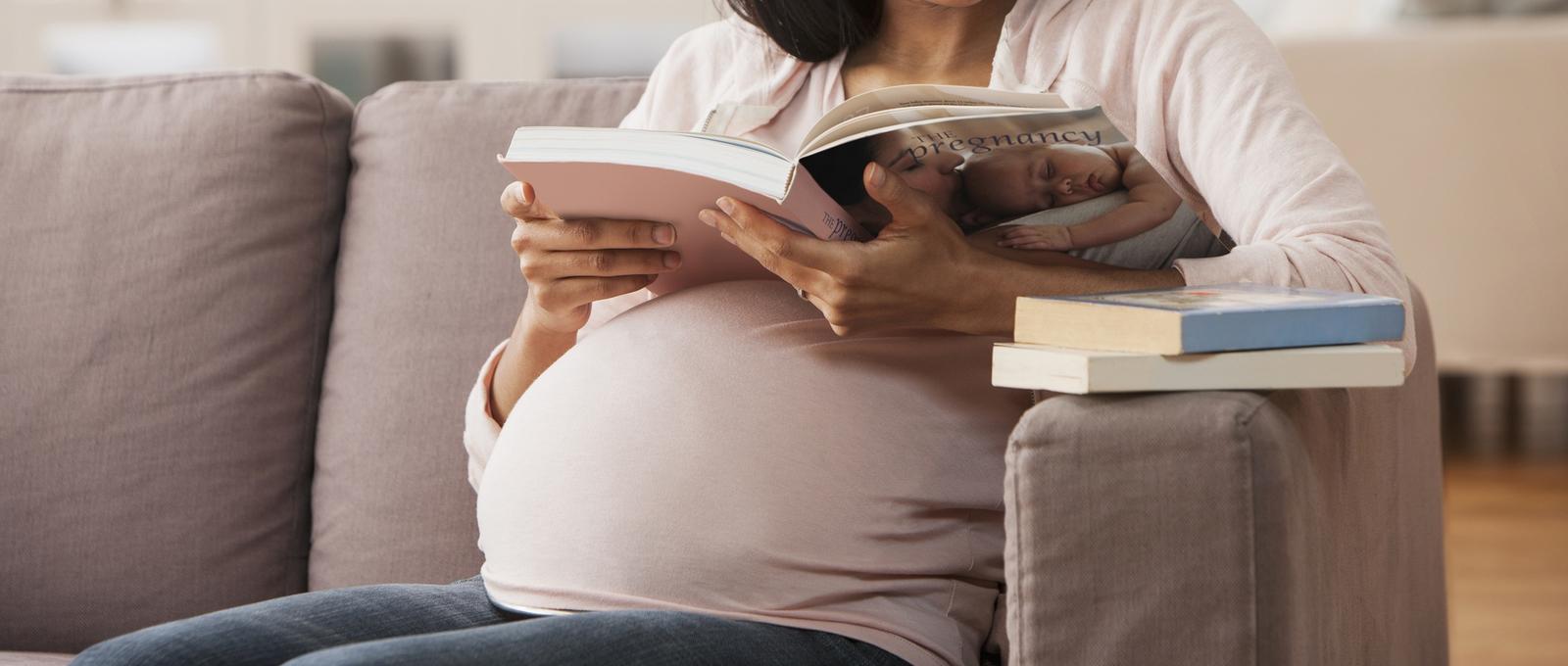
How long to wait before your second baby
Peer reviewed by Dr Sarah Jarvis MBE, FRCGPLast updated by Dr Mary Elisabeth Lowth, FRCGPLast updated 7 Nov 2017
Meets Patient’s editorial guidelines
- DownloadDownload
- Share
- Language
- Discussion
What is the best interval to leave between having your children? People often ask the question, although not everyone is fortunate enough to be able to choose that spacing. There are probably as many views on the 'best' interval between children as there are families with children, and none can be wrong.
In this article:
If you do have a choice in your family spacing, what will matter most is what works best for you and your family. This article looks at the things you might think about and consider when deciding whether, how and when you would like to grow your family.
Continue reading below
How long should I wait before trying for a second child?
There is, of course, no single best answer to this question. You and your partner should try for a second child, if you want one, when you feel the time is right for you.
There are many advantages in having your children closer together, and many advantages in having them further apart. Ultimately, if nature allows you to conceive when you want to, you can weigh up the arguments yourself and make the choice based on your own feelings and preferences.
There are some medical reasons which might push you towards choosing to wait 18-23 months after one pregnancy before beginning the next. This will mean that your children are 2-3 years apart. Statistically, a gap this size gives you the lowest chance of your next baby being premature or of low birth weight. Having said this, most babies are not premature or of low birth weight, whatever the interval that you have left between them and their sibling.
You might though, also want to consider the toll pregnancy took on your body if you opt for a shorter interval between babies. This will vary between women.
Some of the advantages and disadvantages for different 'gap sizes' include:
A short interval (under two years)
Your children are most likely to play together when younger, although they might also be more likely to compete with one another when older.
Your children will probably enjoy activities at a similar level as they grow, making holidays easier to plan.
Your period of dealing with pushchairs, nappies, weaning and toddlers is shorter (although it is also more intense, which can be tiring).
Your older child will not be held back as much on family outings by what the younger child can manage.
If you have a second period of maternity leave this will save on childcare costs for your older child and give you more time with him or her when young.
Having two pregnancies close together can be hard on your body. You are more likely to experience anaemia, as your iron stores may not have replenished from your last pregnancy.
Parents comment that:
Being pregnant whilst you have a child that still needs to be lifted and carried can be tough.
Morning sickness, if you experience it, can make preparing appetising food for your other child really tough.
Having two children under 2 years old is very hard work for a while because of the practicalities of feeding, weaning, sleeping, nappies and so forth - although this age passes intensively but fast.
Having a very short interval (12-14 months) meant that the first child was still quite 'easy to manage' when the second was born.
Having two children under 2 usually means you can't hand-me-down pushchairs and cots and will have to buy more. However, handing down baby clothes is easy.
If the siblings are close in age then during the (often difficult) teenage years they may be more likely to support one another as friends.
A medium interval (two-four years)
You will have had more time to recover between pregnancies, which is healthier for you and your pregnancy.
You may be able to reuse equipment your first child has grown out of, rather than having to buy a second set of everything.
The age difference between your children is probably too great for them to play together in the first few years, but after this they may start to do so.
Your older child may be attending playground or nursery, giving you some one-to-one time with your new baby.
Parents comment that:
It can mean having only one child in nappies at a time.
Your first child will hopefully be sleeping by the time your second is born.
It gives you a chance to enjoy your first baby's babyhood before embarking on the adventure again.
Three years is better than two because a two-year gap puts the birth of your baby right in the 'terrible twos.'
Two years is better because children play well together with this separation.
A longer interval (over four years)
As time goes by the benefits of a second labour (typically easier and shorter) tend to fade as your body 'forgets'.
Longer intervals may mean that you are becoming an older mum, which starts to carry some slightly increased risks for you and your baby, particularly after the age of 40 years.
It may be difficult for your children to really become close until they are older, as the gap in maturity will be so great. On the other hand, your younger child may admire your older child and be taken under their wing.
You may find that, in the early years, your children compete for your time and energy because their needs are so different.
Parents comment that:
It's easier to prepare a 4 year-old for the arrival of a new baby.
By the time your baby comes your older child has had the benefit of having you to themself for all their preschool years.
Children of 4-5 years or more are interested in, and will help with, a baby sibling.
You can spread the cost of having children over a longer period of time, so may be able to better provide for your children.
If you really enjoyed parenting your baby and toddler you get longer to focus on this if your children are young at different times.
Wider gaps may give the opportunity to treat each child in a more individual way.
Your older child may feel put-out when the younger arrives, particularly if there have been changes in the family and the new baby is a step-sibling. Your older child could feel excluded by this and it's something they may like to be reassured about, both in advance and after your new baby is born.
What is the minimum time I should wait between pregnancies?
It's technically possible to conceive again within a month of your baby's birth, although this is fairly unusual even if you are trying. However, conceiving within three months is not unusual, even if you are breast-feeding exclusively. In many parts of the world women have historically had very little space between pregnancies and you might think that, since nature allows our bodies to do this, it must be fine.
It is true that our bodies are capable of having another baby quickly and many women do so without any difficulty - but there are some medical disadvantages to leaving a short gap. What nature allows us do with our bodies isn't always the best thing for our short-term or long-term health. (People who study evolution would argue that nature doesn't really care about women's health later, once we can no longer have babies!)
Vaginal delivery versus caesarean section
If you had a vaginal delivery there is no fixed 'minimum' time you should wait between pregnancies, although you still might want to consider the facts below. However, if you had a caesarean section, doctors advise waiting at least 12 months so that the scar tissue on your womb has matured.
Your baby's weight and prematurity
Research suggests that a very short gap and a very long gap both increase the chance of prematurity and lower birth weight in your next baby.
Women with a gap of less than 11 months between pregnancies have a significantly higher chance of being induced or going into labour before 37 weeks in their next pregnancy, compared to those with a gap of 18-23 months. Women with a gap of 36-48 months have a slightly higher chance of early or induced labour, compared to those with an 18-23 month gap.
These statistics don't apply to women who have lost a baby. For them, a short gap before a new pregnancy is actually an advantage and lowers their chance of a preterm birth. Older mothers may also benefit overall from a shorter gap, as for them the risks attached to a short gap may be balanced out by the increased risks of premature or low-birth-weight babies, and of congenital problems, for mothers of older age.
Statistically, for most women, the lowest chance of your next baby being premature or of low birth weight comes if you leave a gap of 18-23 months between pregnancies. On its own, this concern should not outweigh all the other reasons you might have for wanting your children closer together or further apart. Whilst the risks of early or small babies are definitely increased, they are not high risks in the first place and most women who have shorter or longer intervals between their children do not have premature or low-birth-weight babies.
Your body's recovery
Pregnancy places huge demands on your body and you are more likely to be fit and healthy after pregnancy if you allow yourself recovery time in between. There are a few health-related things you might like to consider before deciding when you'd like to conceive again:
Pregnancy-related health conditions
Pregnancy is a drain on your body and if you have several pregnancies close together you are more likely to become anaemic in the later ones,as your iron stores have been depleted and have not had a chance to recover.
The need to recover becomes more important if you were unwell in pregnancy. For example, if you experienced prolonged hyperemesis gravidarum, gestational diabetes or high blood pressure in pregnancy then getting your body back to full fitness before conceiving again is likely to take longer.
Pre-existing illnesses
If you have a pre-existing long-term physical health condition such as diabetes, high blood pressure or a heart condition, it is sensible to get yourself as fit and stable as you can with regard to your condition before conceiving again. This is particularly important if your condition became worse or more difficult to manage in your pregnancy. It is sensible to discuss your plans with your GP or specialist to find out whether they have any concerns that might affect your decision.
If you have a mental health problem which was affected by pregnancy then it is highly advisable to take recovery time. We know that, for example, women with bipolar disorder tend to have flare-ups in pregnancy, and severe postnatal depression is more likely. Becoming pregnant again too quickly for you could increase this risk and make things worse in the second pregnancy than they were in the first.
Back pain and pregnancy
Pregnancy softens your ligaments and gives you a large weight to carry around on your front, and this makes backache a common problem. It may be several months after delivery before your ligaments and posture return to normal. If you get rid of your backache before your next pregnancy you are unlikely to get on top of it during that next pregnancy.
Recovering your figure
Pregnancy has a physical and a cosmetic price, with skin which is stretched, breasts which change shape, and varicose veins that appear. If you allow your body healing time, in particular tightening and strengthening your abdominal muscles and supporting your breasts well, you are less likely to feel that your body is further affected by your next pregnancy.
Breast-feeding whilst pregnant
Exclusive breast-feeding (meaning that you do not supplement your baby's feeding with formula) provides some contraception. But while it can be a fairly effective method if you fulfil very strict criteria, it certainly is not a reliable contraception for most, particularly once your periods return. That means it is not at all unusual to conceive whilst breast-feeding. Being pregnant again does not prevent you from continuing to breast-feed your previous baby. However, you should bear in mind that breast-feeding one baby whilst gestating another is an added demand on your body, meaning that it's important that you get a good balanced diet with enough calcium and vitamins.
Most women experience a decrease in breast milk quantity in the second trimester of pregnancy, and some find that their previous child initiates weaning at this point as they notice a change.
As long as your previous baby is gaining weight breast-feeding at least 3-4 times a day, they won't generally need a formula supplement.
You can breast-feed your previous child into the postpartum period with the next child. If you do this then, in late pregnancy, your milk will gradually change to colostrum and you may find that your first child rejects it.
Continue reading below
Is there a maximum time I should wait before getting pregnant again?
There isn't a maximum, although of course the longer you wait the older you get. However, as explained above, the lowest risk of premature birth (birth before 37 weeks) comes with a gap between pregnancies of 18-23 months.
If you are an older mother hoping to conceive again you will also need to consider that, for every year you wait beyond the age of 35, your fertility may become a little less reliable. Your increasing age also slightly increases the chance of your baby being born prematurely or of low birth weight. If you are over 40 then risks of pregnancy to you and your baby will also start to climb.
Dr Mary Lowth is an author or the original author of this leaflet.
Patient picks for Contraception

Sexual health
Does hormonal contraception affect your sex drive?
Anyone who has used hormonal contraception has most likely seen the long list of potential side effects. Next to the health warnings, 'change in sex drive' is easy to ignore. But for women who experience them, changes in libido can be frustrating and upsetting.
by Milly Evans

Sexual health
Will we ever have a male contraceptive pill?
Could we soon have a male version of the pill? For many people, unsatisfied with current modes of contraception, the prospect probably sounds too good to be true.
by Abi Millar
Continue reading below
Article history
The information on this page is peer reviewed by qualified clinicians.
7 Nov 2017 | Latest version

Ask, share, connect.
Browse discussions, ask questions, and share experiences across hundreds of health topics.

Feeling unwell?
Assess your symptoms online for free
Sign up to the Patient newsletter
Your weekly dose of clear, trustworthy health advice - written to help you feel informed, confident and in control.
By subscribing you accept our Privacy Policy. You can unsubscribe at any time. We never sell your data.